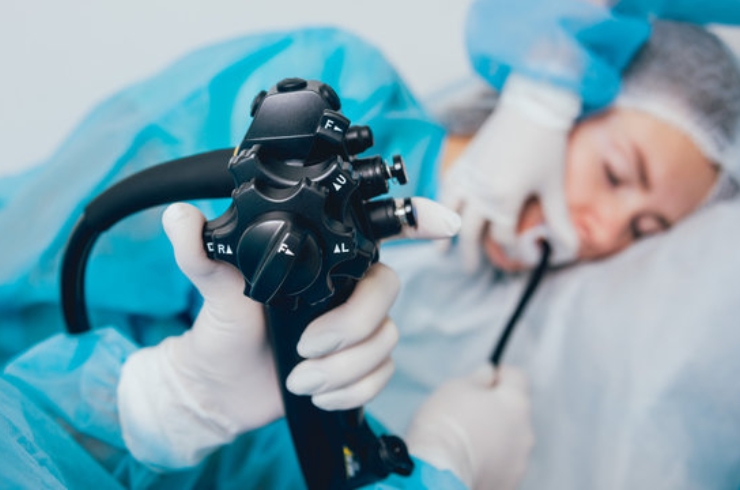
Gastroscopy, also known as upper GI endoscopy, is a diagnostic procedure used to examine the lining of the esophagus, stomach, and upper part of the small intestine (duodenum). It helps identify the root cause of symptoms such as persistent stomach pain, acid reflux, nausea, vomiting, difficulty swallowing, or unexplained weight loss. Using a thin, flexible tube called a gastroscope fitted with a camera and light, doctors can view high-resolution images of the digestive tract in real-time. This allows for accurate detection of conditions like gastritis, ulcers, polyps, inflammation, tumors, and early signs of cancer.
Gastroscopy is a quick and safe outpatient procedure usually performed under local anesthesia or mild sedation to minimize discomfort. The patient lies on their side while the endoscope is gently guided through the mouth into the stomach. The procedure typically lasts 10–15 minutes, and patients can go home the same day. In addition to diagnosis, gastroscopy can also be used for therapeutic purposes—such as stopping bleeding, removing polyps, or taking biopsies of suspicious tissues for further examination—without the need for open surgery.
Recovery after gastroscopy is usually swift, with most patients resuming normal activities within a few hours. A slight sore throat or bloating may occur temporarily. The results are discussed soon after the procedure or once biopsy reports are ready. Early detection of gastrointestinal issues through gastroscopy allows for timely and effective treatment, significantly improving patient outcomes. With a team of skilled endoscopy specialists and state-of-the-art diagnostic tools, MIMAS World Hospitals provides comprehensive gastroscopy services, ensuring accuracy, comfort, and confidence in every step of your digestive health journey.